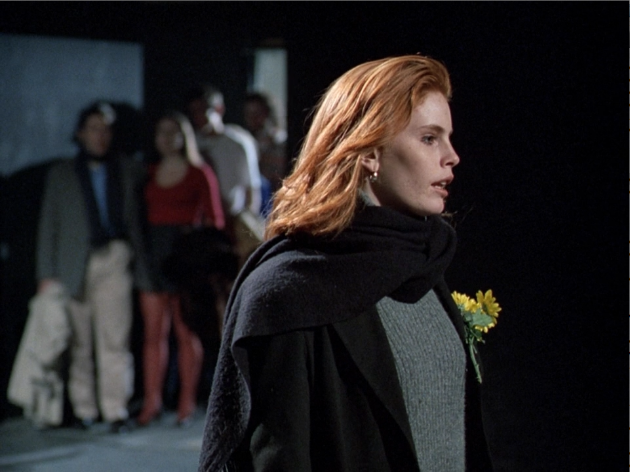
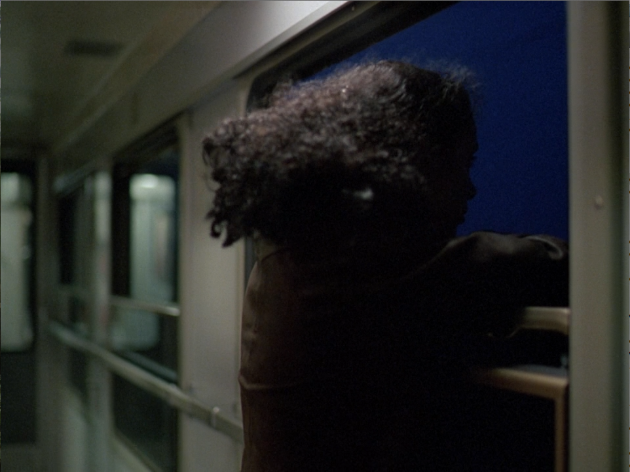
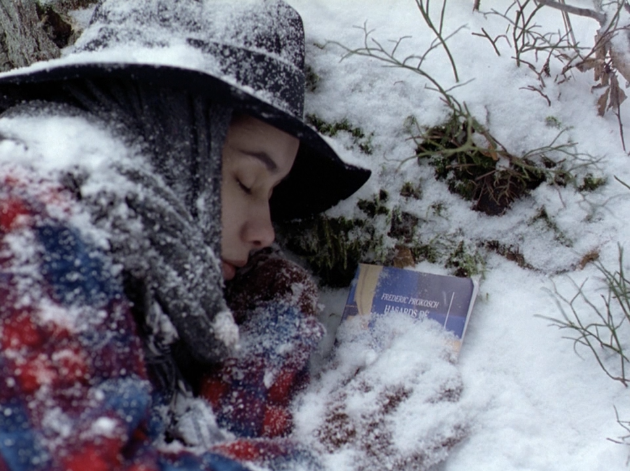
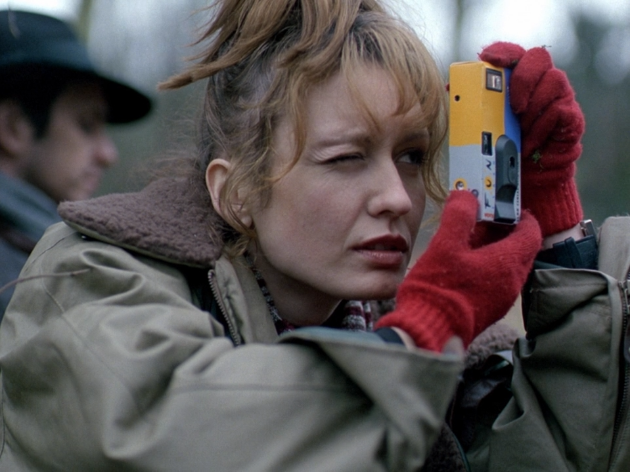
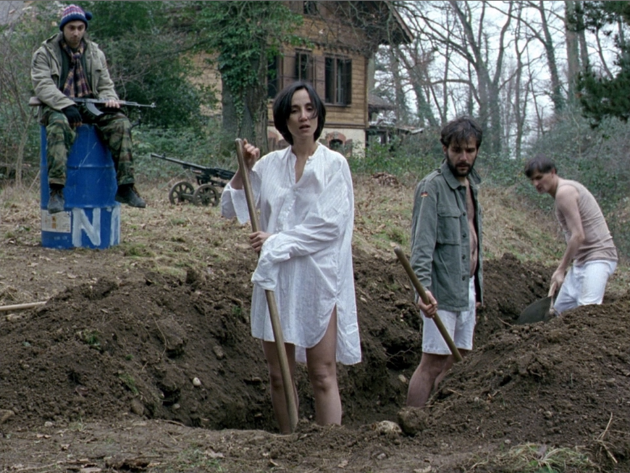
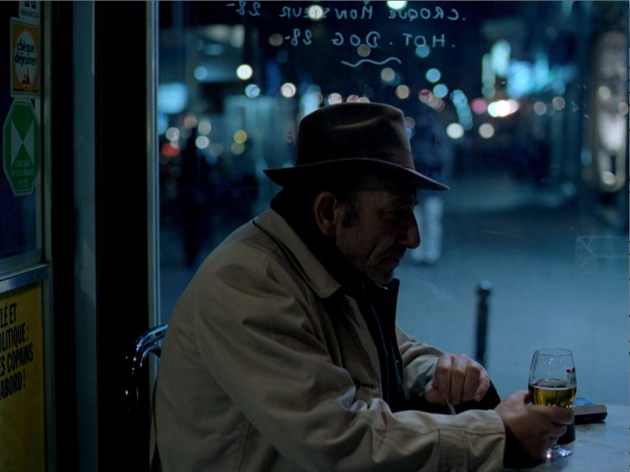
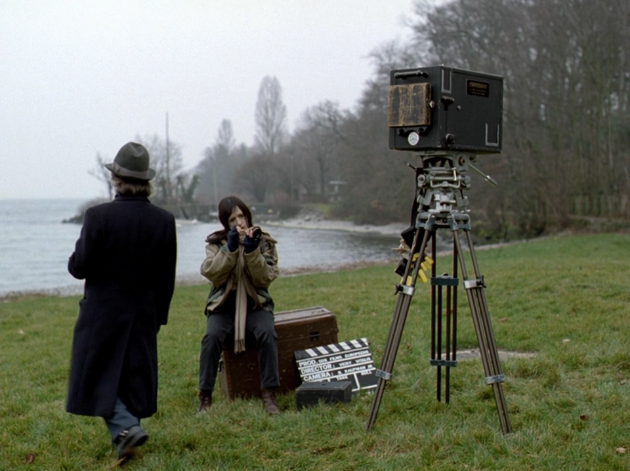
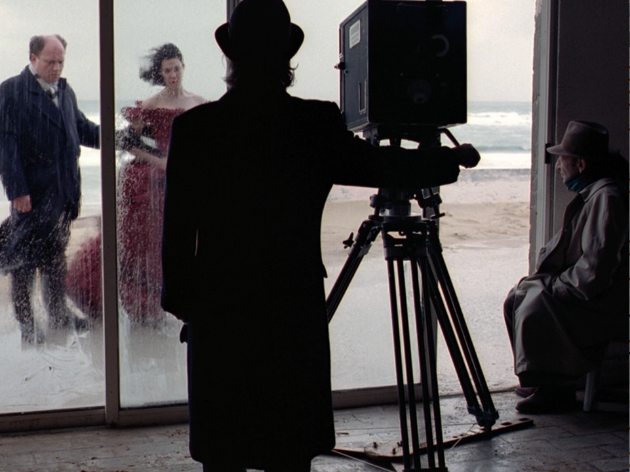
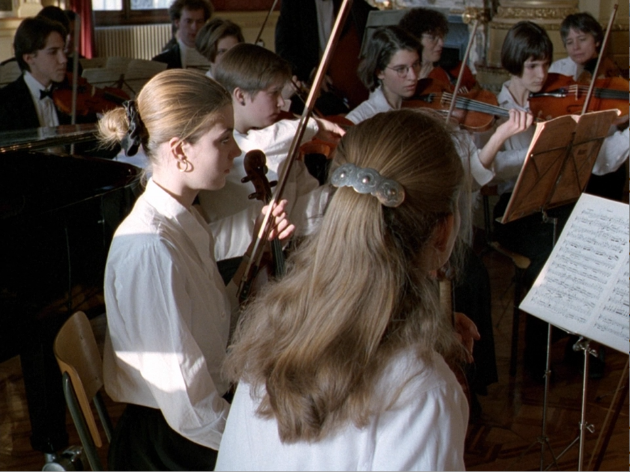
An old director Vicky (Vicky Messica) is about to direct a film called Fatal Bolero, about a war and suffering. It is largely financed by a seedy old gambling mogul who makes his girlfriend transcribe anal porn, word by word for his pleasure. Vicky holds a large audition for roles and rejects every one of them before they even finish one word from the line they were given. He doesn't want acting, he wants reality. In the mean time, his idealistic daughter Camile (Madeleine Assas), a philosophy professor, decides to go to war torn Sarajevo and put up some romantic play. Her lovelorn cousin Jérome (Frédéric Pierrot) and her Arab maid Rose (Ghalia Lacroix) follow her to her journey. Before they even get to Sarajevo, they are captured by Serb forces and anally raped and forced to dig their own grave and die during heavy bombardment. Rose escapes with one of the fighters who takes a shine to.
After getting the exhausted "Oui" from the actress (Bérangère Allaux of whom Godard was infatuated at the time) the non-acting acting he wanted, Vicky finishes Fatal Bolero with a huge boxy ancient film camera. The words get around that the film is shot on black and white and it's about war and suffering, the movie goers who lined up outside the theater peters out saying, "Let's go see Terminator 4 instead!"
It ends with a Mozart concert by a young orchestra. The audience take their seat, softly debating the weightiness of Wagner and light-heartedness of Mozart, having too many notes, etc. They are all waiting for a pianist to arrive. And he happens to be an effete young man with a long hair, playing beautifully. One of Vicky's overwhelmed (by the pianist's beauty) crewmember unwittingly becomes a page turner for the pianist. Exhausted Vicky listens to the concert at the top of the stair case he just reached.
Godard's condemns the passivity of France and Europe in general about another genocide taking place in their backyard, Bosnia-Herzegovina. He also plays with the theme of differences experiencing existence through body and spirit, representation of real events with a movie camera being nothing but a shadow, a generation (grand children of WWII generation) not purified but corrupted by suffering and guilt of their fathers weighing on them (Camile, a granddaughter of Camus). For Ever Mozart is not a heartless all out satire of Weekend. Camile & Co.'s action doesn't play out like a farce and characters drawn sympathetically. But Godard admits the limit to the power of art- that in the face of horror, even art is not enough to save the day. There is overwhelming sense of sadness and defeatism throughout the film.
No comments:
Post a Comment